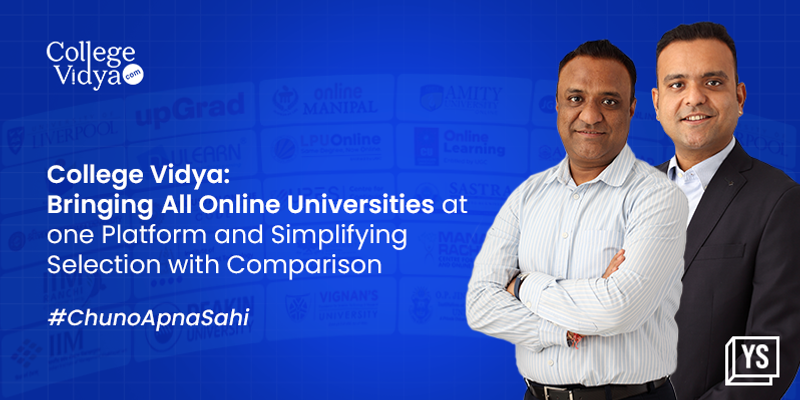Data Natives x India: Interview with Vikramank Singh from Facebook
Disclaimer: YourStory is a media partner for the Data Natives conference. This story was first published here.
It’s already less than two weeks until the Data Natives X India conference commences in none other than amazing Mumbai! With the event just around the corner and so many incredible speakers to see, we took the time to talk with one of our workshop heads, Vikramank Singh about his experience as a Machine Learning specialist at Facebook. On top of his time spent on some of Facebook’s most successful apps, Vikramank is also a gifted public speaker who passionately shares his knowledge with a range of different people. Articulate and open-minded, he had much of interest to say about the nature of his work, his passion for technology and why he’s highly optimistic about Machine Learning and AI.
What aspects of Machine Learning and AI are you utilizing for your work at Facebook?
We usually work on the Torch/PyTorch or Caffe2 frameworks for most of our projects here. Since I work for the Connectivity Lab team at Facebook, we usually prefer using open source frameworks so that we can open source our work later on for other developers to use and develop upon that.
What does Facebook gain from your analysis of how people connect offline?
The Offline Social Network was one of the most ambitious projects at Facebook. We aimed to serve unconnected and under-connected people and help them without using wifi. I was involved in each phase of product development. My work majorly revolved around core product enhancement, improving latency and analyzing how people connected using our platform.
We used the concept of Homophily to state how multiple small offline social networks can significantly revolutionize the way Ads Business works for both Facebook and it’s customers. While we were working on the Offline Messenger, we realized how impactful this can be in crisis situations like floods, droughts and man-made calamities. One such use case was a Syrian refugee camp where hundreds and thousands of people used to commute from one camp to another. Their only platforms for exchanging vital information were Facebook Messenger, Whatsapp, Viber etc.
Due to lack of connectivity, thousands of them could never get the correct information and hence suffered enormously. We realized how our offline messenger could help them get the right information on time and get them basic necessities like shelter and food.
What have you learned while working on the messenger app that really surprised you?
While working on a platform like Messenger, you carry a huge responsibility on your shoulders because whatever you develop is going to affect billions of people in a direct manner. Messenger has 70M DAP and 1.3Bn MAP, and hence it’s really important to reiterate on what new feature you’re adding to a platform which has such a huge user base.
To what extent does your work impact the design of apps like Facebook Messenger?
Design has always been at the core of all of Facebook’s products. We pay very high attention to the design and interface with which user is going to interact directly. We pretty much follow standard design protocols across Facebook. My team also followed the same protocols while building the prototypes, wireframes and the beta.
As a speaker who enjoys explaining data to “non-technical audiences,” what key ideas do you prioritize getting out to people who don’t have your skillset?
I always believe that everyone who is listening to what you say should have a sense of purpose as to why they’re sitting in the audience. If they connect to every single word coming out of your mouth, they are going to find it interesting even if you’re saying some elementary stuff. If you don’t engage with them by giving them real world examples with which they can identify, they won’t be able to connect to your speech, even if you’re explaining rocket science!
Stories are always interesting. Also, I try to connect my talks to a sense of purpose. Therefore I spend a lot of time understanding the composition of crowd and their needs before giving a lecture/talk.
One of the most excited reviews I got was from a professor at University of Mumbai. She said, “Vikramank, I have been teaching computer architecture at this college for last 25 years, but after attending your session I want to switch my field and want to work in the field of AI.” An attendee I remember was at the International Deep Learning Summit 2017 Singapore, where she tweeted to me right after talk saying she is a complete non-tech person but after hearing my keynote she could actually understand what ML is and how it could help her business prosper.
How could all companies do a better job of making the most of the research done by data scientists?
OPENSOURCE is the answer. We at Facebook believe in this too. In order to help the community grow, leaders like us have this responsibility to share our work with everyone out there and empower them with the infrastructure and architecture to build something unique. Google did this with open sourcing TensorFlow. Facebook did this with PyTorch and Caffe2. Today, a lot of ML startups use TensorFlow or Caffe2 frameworks to build their core pipelines for mass productions. I strongly believe this the right path forward towards empowering every single person to build things that matter and change the world for the better.
How do you see the expansion of AI impacting the future job market in India?
I don’t really think AI will replace humans at their work. I mean, I see them complementing humans in their existing work, as machines have been doing for ages. Talking specifically about India, there could come a day when we say AI has started impacting the Indian markets; but there is quite some time before something like that happens.
What areas of Machine Learning are of particular interest to you? What would you like to learn more about if you had more time?
I particularly find playing a lot with GANs and Machine Translation. I find it really exciting how a machine can generate a complete new set of images or videos or even generate new volumes of novels if trained appropriately.
What are you excited to learn more about from the upcoming Data Natives X conference in Mumbai?
It is always exciting to connect with like minded people at such conferences and share about the work that I’ve been doing and learn about their work. Specifically in the field of Machine Learning and AI, it’s always fascinating to see the use cases as the opportunities are endless and innovation has no limits.
What recent discovery of yours makes you optimistic about the future?
In general, I am really optimistic about the way that AI has progressed. Organizations like OpenAI and the new ethics community established by DeepMind will definitely keep the vision of AI for good alive and use this power for the betterment of society. The way we have progressed from defeating Lee Sedol by AlphaGo to defeating Dendi by OpenAI at the DOTA2 Championship, I believe the possibilities are endless. I feel really fortunate to witness this age of AI.
For more insights from Vikramank, be sure to check out Data Natives X India.











